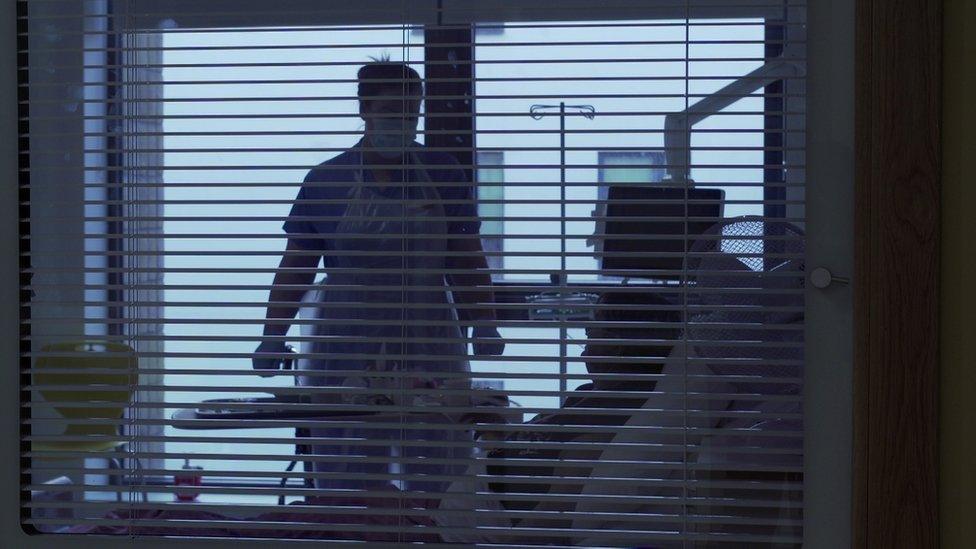Covid 19: NI records youngest death related to coronavirus
- Published
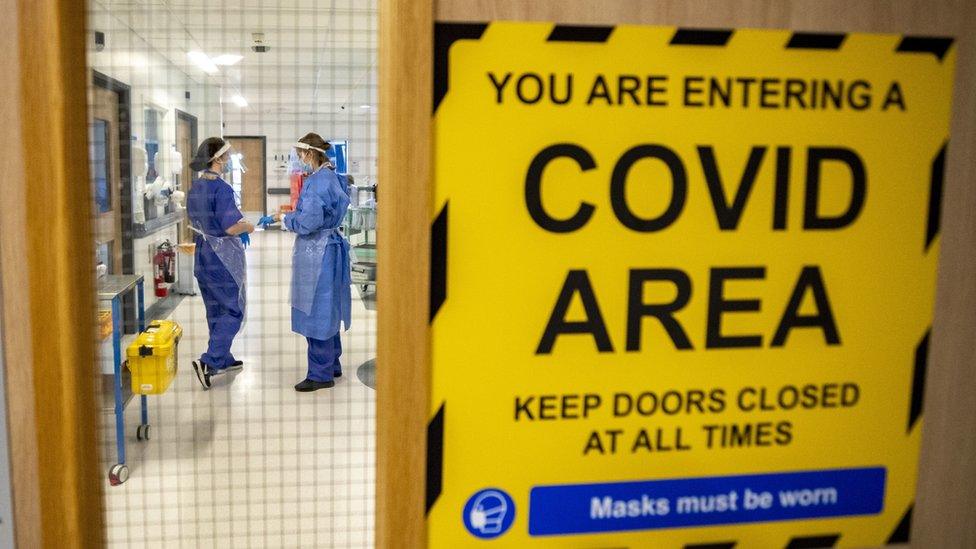
It's the first time anyone under the age of 19 has died with Covid-19 in Northern Ireland
A male aged 19 or under was among the nine people who died with Covid-19 in Northern Ireland in the past 24 hours.
According to the latest figures from the Department of Health, the death happened in the Derry City and Strabane District Council area.
It is the first coronavirus-related death in the 0-19 age category in Northern Ireland.
It comes as senior health officials ask people to step up efforts to reduce the spread of Covid-19.
Chief Medical Officer Dr Michael McBride warned that believing Northern Ireland will return to normality at the end of the current four-week period of additional restrictions was "misplaced".
"Whatever you're doing now, do it twice as hard - reduce the risk to yourself and others," he told a press briefing.
There is no further information available from the department's dashboard, external about the young person who died.
His exact age or general state of health before contracting Covid-19 have not been made public.
The department includes anyone who has died within 28 days of receiving a positive test for Covid-19 as a coronavirus-related death.
Hospitals above capacity
All nine of the deaths reported on Wednesday happened in the past 24 hours.
They bring the total number of coronavirus-related deaths recorded by the Department of Health to 680.
Another 840 cases of the virus have been confirmed, bringing the official total to 36,394.
The statistics show that hospitals are operating beyond capacity - at 103% occupancy across the entire Northern Ireland healthcare system.
That includes the total beds that are occupied and the additional beds that are needed for those awaiting admission.
So while some hospitals across Northern Ireland may have capacity, the overall number of people waiting for a bed in hospital, plus those already in hospital, may outweigh the number of beds technically available.
Just five out of 12 hospitals in NI reported any spare capacity and there were no general beds reported as available when the data was compiled earlier on Wednesday.
Only 13 intensive care beds were not occupied this morning.
Those beds are part of the critical care network, which means beds will be scaled up at another site, so that anyone requiring intensive care will be able to be admitted.
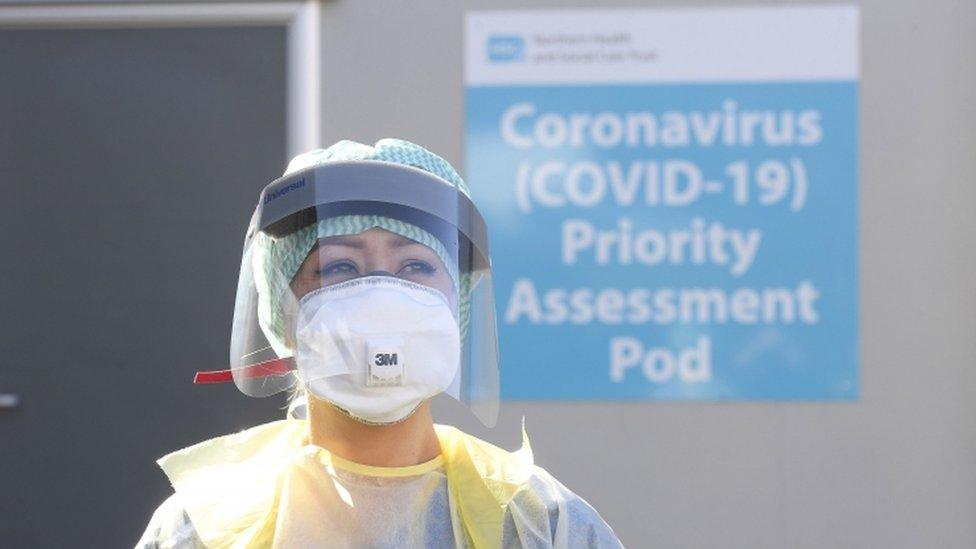
As the number of Covid admissions increase, only five hospitals in NI have spare beds
The death of someone aged 19 or under after contracting Covid-19 is unusual in general terms.
The majority of deaths have been among older and more vulnerable age groups and those with underlying health conditions.
In the Republic of Ireland, six more deaths related to Covid-19 were reported by its Department of Health, bringing the total number of deaths in the country to 1,896.
As of midnight on Tuesday, the department recorded 675 new cases, bringing the total number to 59,434.
'More buy-in'
Health Minister Robin Swann told the press briefing on Wednesday he wanted to see more "buy-in" from the public in following the regulations.
The executive will meet on Thursday to review the impact of the restrictions on reducing Northern Ireland's R-number, which was sitting at 1.5 when measures were introduced.
R is the number of people that one infected person will, on average, pass the virus on to. The goal is to keep it below one.
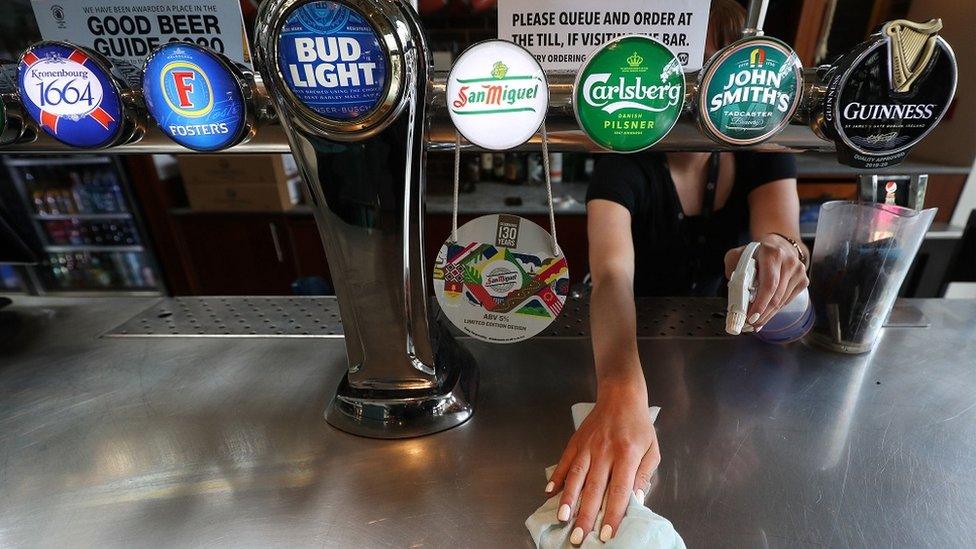
Hospitality venues were ordered to close for four weeks in a bid to reduce the rise in cases across NI
Schools are closed for two weeks, with ministers due to review this on Thursday, while hospitality and other businesses were forced to shut until 13 November.
On Wednesday, Dr McBride said the latest evidence showed the R-number was falling as a result of the restrictions put in place, but officials would have liked to have seen a bigger decrease in the rate of infection by now.
"We really have a few short weeks to take action," he said.
"We're now in the middle of winter, this virus will continue to plague us over the next few months - it is crucially important we learn to live with it, we'll have to live very differently as a society.
"It's a matter for the executive to determine further restrictions - when or if they're put in place, but it's highly unlikely we'll be able to keep R below one if we return to a place before the restrictions were put in."
'Flex up' ICU capacity
The chief medical officer also said he did not anticipate intensive care patients in NI needing to be transferred to hospitals in the Republic of Ireland due to a lack of capacity.
It follows reports that the Irish government is preparing for possible requests, external from NI's health authorities.
Mr Swann said he did not recognise the reports, adding: "We're not there yet nor will we be.
"I hope we have the ability to flex up our ICU capacity in the [Belfast] City Hospital tower - there are up to 158 beds there alone.
"While we have good working relationships on children's cardiac services and the cancer centres, it's not something we would recognise."
He insisted Northern Ireland's Department of Health had a "good working relationship" with its counterpart in the Republic of Ireland.
Dr McBride said he did not anticipate Northern Ireland exceeding its surge capacity for ICU beds.
More business support
On Wednesday evening Economy Minister Diane Dodds announced that applications have now opened for part of the Covid Restrictions Business Support Scheme, external,
This part of the scheme is aimed at businesses forced to close because of restrictions but who do not pay business rates, such as driving instructors and mobile hairdressers.
If eligible, they will receive £600 for every week they are closed and it will be paid in one lump sum.
The second part of the scheme is for businesses who have not been forced to close, but are in the supply chain of those who have - e.g. food suppliers, cleaning services.
No date has yet been given for when applications for that part of the scheme will open.
- Published28 October 2020
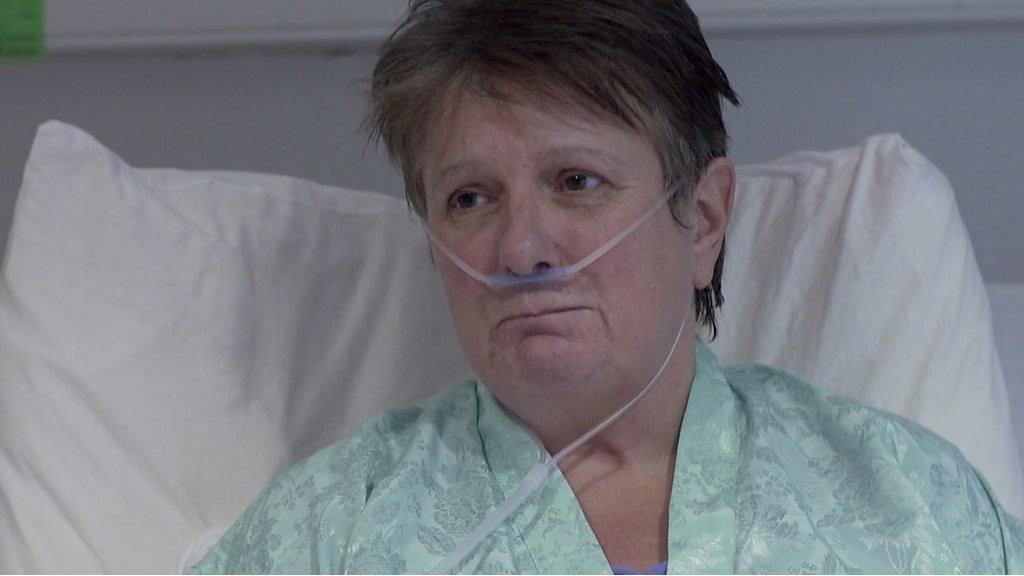
- Published28 October 2020
